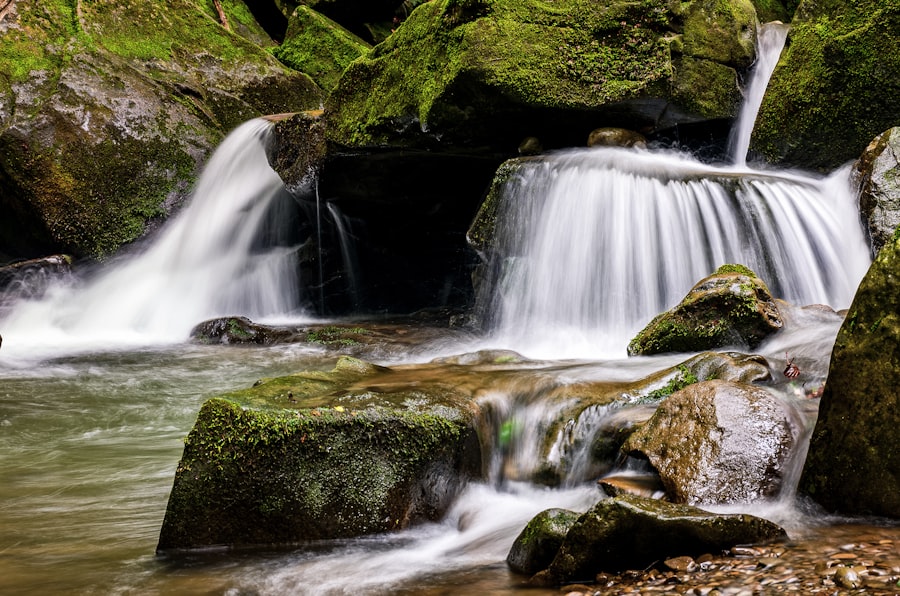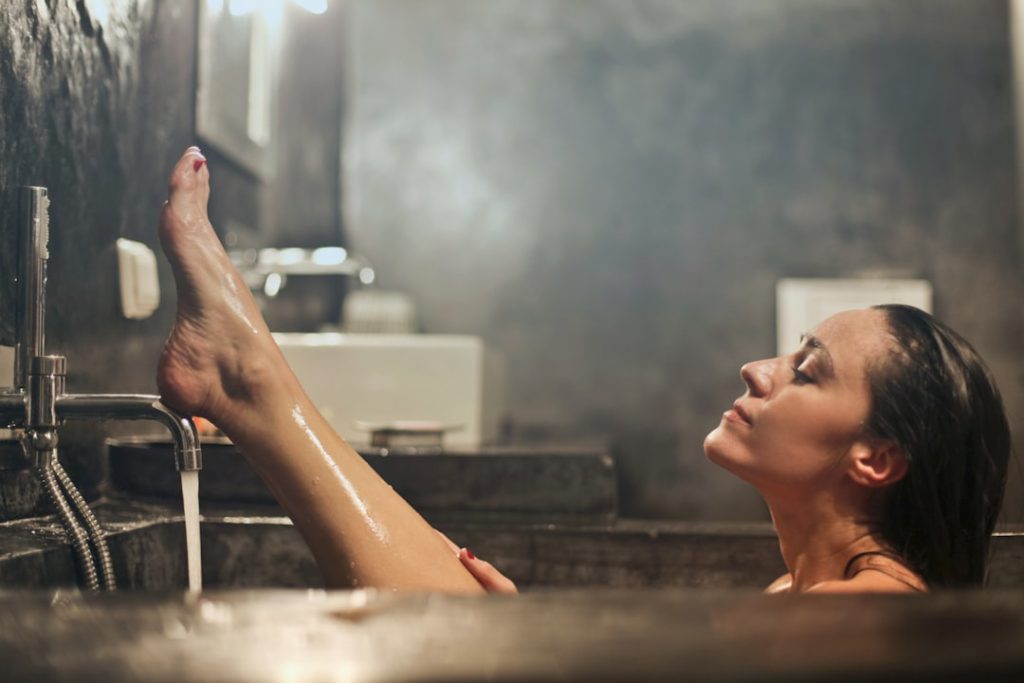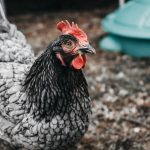A clean water source is crucial for chicken health and welfare. Chickens require access to fresh, uncontaminated water to maintain proper hydration and overall health. Water plays a vital role in digestion, body temperature regulation, and nutrient transport.
Insufficient clean water can lead to dehydration, resulting in reduced egg production, stunted growth, and potential mortality. Contaminated water sources may harbor harmful pathogens, posing significant health risks to the flock. Maintaining a clean water supply also positively influences chicken behavior.
Birds are more likely to consume adequate amounts of water when it is clean and fresh, promoting better health and activity levels. Conversely, dirty or contaminated water may deter chickens from drinking, leading to dehydration and associated health issues. Clean water sources also help prevent disease transmission within the flock, as contaminated water can serve as a vector for pathogens.
Ultimately, providing a clean water supply is essential for ensuring the health, well-being, and productivity of chickens.
Table of Contents
- 1 Regular Cleaning and Maintenance
- 2 Choosing the Right Watering System
- 3 Preventing Algae and Bacteria Growth
- 4 Monitoring Water Quality
- 5 Proper Placement and Protection
- 6 Training Chickens to Keep Water Clean
- 7 FAQs
- 7.1 What is the importance of keeping the water hole clean for chickens?
- 7.2 How often should the water hole be cleaned?
- 7.3 What are some tips for keeping the water hole clean?
- 7.4 What are the potential risks of not keeping the water hole clean?
- 7.5 Are there any natural additives that can help keep the water hole clean?
Key Takeaways
- A clean water hole is crucial for the health and well-being of chickens
- Regular cleaning and maintenance of the water hole is essential to prevent contamination
- Choosing the right watering system can help ensure clean water for chickens
- Preventing algae and bacteria growth is important for maintaining water quality
- Monitoring water quality is necessary to ensure the health of the chickens
Regular Cleaning and Maintenance
Cleaning the Water Hole
The water hole should be cleaned on a regular basis to remove any debris, dirt, or algae that may have accumulated. This can be done by emptying the water hole, scrubbing it with a brush or sponge, and rinsing it thoroughly with clean water.
Inspecting and Maintaining the Water Hole
In addition to regular cleaning, it is important to inspect the water hole for any signs of damage or wear. Cracks, leaks, or other damage to the water hole can lead to contamination and should be repaired or replaced as needed. Any sediment or buildup in the water hole should be removed to prevent clogging and contamination.
Maintaining a Clean Surrounding Area
Furthermore, the surrounding area should be kept clean and free from debris that could potentially contaminate the water. By maintaining a clean and well-maintained water hole, chicken owners can ensure that their flock has access to clean and safe drinking water at all times.
Choosing the Right Watering System
When it comes to providing water for chickens, there are several different watering systems to choose from. The right watering system will depend on the size of the flock, the available space, and the specific needs of the chickens. Some common watering systems include gravity-fed waterers, nipple waterers, and automatic waterers.
Gravity-fed waterers are simple and easy to use, but they can be prone to contamination if not properly maintained. Nipple waterers are a popular choice for larger flocks as they provide a constant supply of clean water and are less likely to become contaminated. Automatic waterers are another option that can provide a continuous supply of fresh water without the need for constant refilling.
When choosing a watering system for chickens, it is important to consider factors such as ease of cleaning, durability, and the ability to provide clean water at all times. Additionally, the watering system should be suitable for the specific needs and behaviors of chickens. For example, some chickens may have difficulty using nipple waterers if they are not accustomed to them.
Therefore, it is important to choose a watering system that is well-suited to the needs of the flock and can provide a constant supply of clean water.
Preventing Algae and Bacteria Growth
One of the biggest challenges in maintaining a clean water hole for chickens is preventing the growth of algae and bacteria. Algae can quickly develop in standing water that is exposed to sunlight, while bacteria can thrive in warm and stagnant conditions. Both algae and bacteria can contaminate the water and make it unsafe for chickens to drink.
To prevent algae and bacteria growth, it is important to keep the water hole clean and well-maintained at all times. One effective way to prevent algae growth is to keep the water hole shaded from direct sunlight. This can be achieved by placing the waterer in a shaded area or using a cover to block out sunlight.
Additionally, regular cleaning and scrubbing of the water hole can help to remove any algae that may have started to develop. To prevent bacteria growth, it is important to ensure that the water is kept cool and well-aerated. This can be achieved by using a watering system that provides a constant supply of fresh water and by regularly emptying and refilling the water hole.
Furthermore, adding a natural sanitizer such as apple cider vinegar or electrolytes to the water can help to inhibit the growth of bacteria and keep the water clean and safe for chickens to drink. By taking proactive measures to prevent algae and bacteria growth, chicken owners can ensure that their flock has access to clean and safe drinking water at all times.
Monitoring Water Quality
Monitoring the quality of the water is essential to ensure that chickens have access to clean and safe drinking water. This can be done by regularly inspecting the water for any signs of contamination such as discoloration, odor, or debris. Additionally, it is important to observe the behavior of the chickens as they drink from the water hole.
If they show any signs of reluctance or aversion to drinking the water, it may be an indication that the water is contaminated. In addition to visual inspection, it is also important to periodically test the water for pH levels, chlorine levels, and bacterial contamination. This can be done using simple test kits that are readily available at most pet supply stores.
By monitoring the quality of the water on a regular basis, chicken owners can ensure that their flock has access to clean and safe drinking water at all times.
Proper Placement and Protection

Proper Placement of the Waterer
Proper placement of the water hole is crucial to ensure that the water remains clean and safe for chickens to drink. The waterer should be placed in a shaded area to prevent algae growth and positioned in a way that prevents contamination from dirt or debris.
Protecting the Waterer from Pests
It is essential to protect the waterer from pests such as rodents or insects that may contaminate the water. One effective way to do this is by using a raised platform or stand that keeps the waterer off the ground and out of reach of pests.
Using Covers and Lids for Added Protection
Using a cover or lid on the waterer can help to prevent contamination from debris or pests. This added layer of protection ensures that the water remains clean and safe for the chickens to drink.
Ensuring Access to Clean Drinking Water
By properly placing and protecting the waterer, chicken owners can ensure that their flock has access to clean and safe drinking water at all times. This is essential for the health and well-being of the chickens.
Training Chickens to Keep Water Clean
Training chickens to keep their water clean can help to prevent contamination and ensure that they have access to clean drinking water at all times. One effective way to train chickens is by providing them with multiple sources of clean water. This can help to prevent overcrowding at one waterer and reduce the likelihood of contamination.
Additionally, some chicken owners have had success in training their flock by adding treats or supplements such as apple cider vinegar or electrolytes to the water. This can encourage chickens to drink more frequently and help them develop a habit of keeping their water clean. By training chickens to keep their water clean, chicken owners can help to maintain a healthy and productive flock.
In conclusion, maintaining a clean water hole for chickens is essential for their health, well-being, and productivity. Regular cleaning and maintenance, choosing the right watering system, preventing algae and bacteria growth, monitoring water quality, proper placement and protection, and training chickens are all important aspects of ensuring that chickens have access to clean and safe drinking water at all times. By taking proactive measures to maintain a clean water hole, chicken owners can help to ensure that their flock remains healthy and productive.
If you’re looking for more tips on keeping your chickens healthy and happy, check out this article on how to insulate a chicken coop. Proper insulation can help regulate the temperature inside the coop and keep your chickens comfortable in all seasons.
FAQs
What is the importance of keeping the water hole clean for chickens?
Keeping the water hole clean for chickens is important for their health and well-being. Clean water helps prevent the spread of diseases and ensures that the chickens have access to safe and fresh drinking water.
How often should the water hole be cleaned?
The water hole should be cleaned and refilled with fresh water at least once a day. In hot weather or if the water becomes dirty more frequently, it may need to be cleaned multiple times a day.
What are some tips for keeping the water hole clean?
Some tips for keeping the water hole clean for chickens include using a waterer with a cover to prevent contamination, placing the waterer in a shaded area to prevent algae growth, and regularly scrubbing and rinsing the waterer to remove any buildup.
What are the potential risks of not keeping the water hole clean?
Not keeping the water hole clean for chickens can lead to the spread of diseases, such as bacterial infections or parasites, and can also result in decreased water intake, which can lead to dehydration and poor health in the chickens.
Are there any natural additives that can help keep the water hole clean?
Some natural additives, such as apple cider vinegar or garlic, can be added to the chickens’ drinking water to help keep it clean and provide additional health benefits. However, it’s important to use these additives in moderation and consult with a veterinarian if unsure.
Meet Walter, the feathered-friend fanatic of Florida! Nestled in the sunshine state, Walter struts through life with his feathered companions, clucking his way to happiness. With a coop that’s fancier than a five-star hotel, he’s the Don Juan of the chicken world. When he’s not teaching his hens to do the cha-cha, you’ll find him in a heated debate with his prized rooster, Sir Clucks-a-Lot. Walter’s poultry passion is no yolk; he’s the sunny-side-up guy you never knew you needed in your flock of friends!







